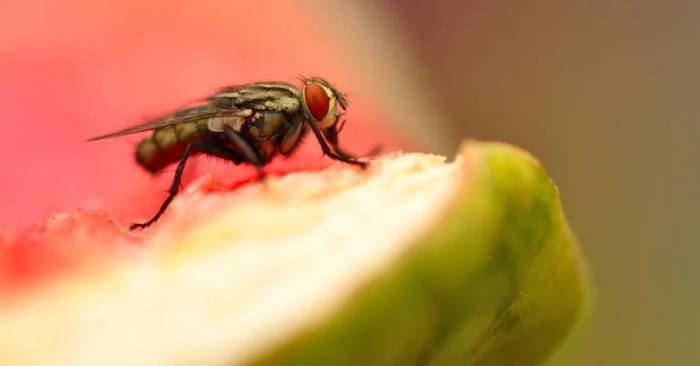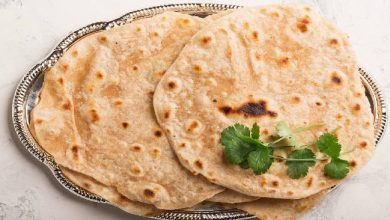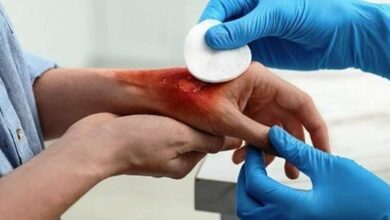Beware of the Uninvited Guests: What Flies Can Do to Your Food

Whether you’re savoring a picnic in the great outdoors or a cozy meal at home, the unwelcome presence of houseflies near your food can turn your dining experience into a health hazard. Houseflies, often seen buzzing around food, can carry pathogens associated with severe diseases such as typhoid fever, dysentery, cholera, and tuberculosis, warns the US National Institute of Health. Even if you enjoy street food or snacks from roadside stalls, it’s crucial to reconsider consuming such items when flies are present, as they can pose a significant risk to your well-being.
The Dangers Lurking in Fly-Contaminated Food
Houseflies are notorious for feeding on feces and decaying organic matter. During this feeding process, disease-causing pathogens adhere to their mouthparts, wings, legs, and other body surfaces, as highlighted in a 2018 paper published in the ‘BMC Public Health’ journal. When a housefly lands on your food or in your drink, it can transfer these harmful pathogens, putting your health at risk.
How Flies “Eat” Your Food
Contrary to common belief, flies don’t have teeth, so they cannot take bites or chew. Instead, they regurgitate enzyme-rich saliva onto your food. This saliva contains digestive enzymes that break down the food, forming a mix that the fly then slurps up. In this process, flies can also contaminate your food by defecating or laying eggs on it.
Preventing Flies From Touching Your Food
While a brief encounter with a fly might be tolerable, prolonged contact increases the risk of contamination. Here are some preventive measures:
Avoid Outdoor Eating: Especially from unhygienic street-side vendors.
Natural Repellents: Place cloves inside lemon halves around your kitchen; the scent helps deter flies.
Maintain Cleanliness: Regularly clean your kitchen and living spaces to discourage fly attraction.
Strategic Lighting: Dim lights or use yellow bulbs during outdoor meals to minimize attraction.
Mouthwash Repellent: Create a repellent by mixing mouthwash with alcohol; spray it on tables and chairs around food.
By implementing these strategies, you can reduce the chances of flies landing on your food, minimizing the risk of infections and ensuring a safer dining experience.






